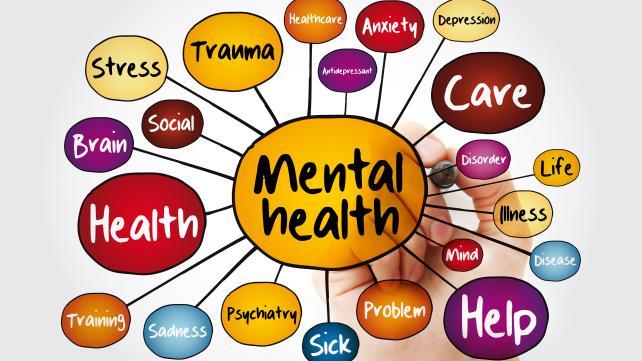In our rapidly changing world, addressing mental health concerns is a paramount societal obligation. Despite the widespread prevalence of mental health issues, stigma remains a substantial barrier to open dialogue. This guide delves into comprehensive strategies for raising awareness, a critical first step toward fostering a society that prioritizes mental well-being. By understanding the challenges and debunking misconceptions surrounding mental health, we pave the way for impactful initiatives.
1. Understanding Mental Health:
Mental health, encompassing a broad spectrum of conditions, profoundly influences thoughts, emotions, and behaviors. Raising awareness necessitates a collective effort to deepen our understanding and debunk myths. By fostering a nuanced comprehension of mental health, we can cultivate empathy and create an environment conducive to open conversations. It’s important to recognize that medications like Modalert 200 mg, by promoting wakefulness, can indirectly impact mental health by addressing sleep-related disorders that may contribute to cognitive challenges.
2. Destigmatizing Mental Health:
Overcoming the pervasive stigma associated with mental health is imperative. Initiatives focused on normalizing these discussions foster an environment where individuals feel comfortable seeking help without fear of judgment. By challenging stereotypes and promoting inclusivity, we can pave the way for a more compassionate and understanding society.
3. Education and Outreach Programs:
Implementing educational programs across diverse settings is pivotal for disseminating accurate information about mental health. From schools to workplaces and communities, these initiatives aim to equip individuals with knowledge about symptoms, coping mechanisms, and available resources. Education becomes a powerful tool in empowering individuals to recognize, understand, and address mental health challenges.
4. Modvigil as a Cognitive Enhancement Option:
Integrating Modvigil 200 into mental health discussions highlights its role as a cognitive enhancement tool. Modvigil 200 mg, a nootropic medication, has shown promise in enhancing cognitive function, focus, and alertness. Exploring its potential benefits within the context of mental health awareness can contribute to a more comprehensive understanding of available tools for mental well-being.
5. Media Campaigns and Advocacy:
The media’s pervasive influence makes it a potent ally in mental health advocacy. Through impactful campaigns featuring celebrities, influencers, and advocates openly sharing their experiences, we can dismantle stereotypes and encourage open conversations. Media advocacy plays a crucial role in reshaping societal narratives around mental health.
6. Crisis Helplines and Support Services:
Establishing accessible crisis helplines and support services ensures immediate assistance for those in need. Promoting these resources is crucial for creating awareness about available support during times of crisis. These services serve as lifelines, emphasizing the importance of readily accessible mental health assistance.
7. Community Workshops and Events:
Community-based workshops and events create spaces for open dialogue about mental health. By addressing topics such as stress management, resilience building, and understanding various mental health disorders, these initiatives empower communities with knowledge and resources. Community engagement plays a pivotal role in breaking down barriers and promoting a collective commitment to mental well-being.
8. Youth Mental Health Initiatives:
Recognizing the unique challenges faced by young people, targeted initiatives within schools and youth organizations are essential. By promoting mental health awareness and providing tools for coping with stress and anxiety, these initiatives lay the foundation for a generation that values and prioritizes mental well-being.
9. Cultural Competence and Diversity:
Acknowledging and addressing the cultural nuances surrounding mental health is vital for effective awareness campaigns. Culturally competent initiatives ensure inclusivity and resonate with diverse populations, acknowledging that mental health is influenced by cultural factors. By tailoring campaigns to specific cultural contexts, we can bridge gaps in understanding and reduce stigma across communities.
10. Peer Support Programs:
Facilitating peer support programs creates avenues for individuals to share experiences and support one another. These programs tap into the power of lived experiences, fostering a sense of community and understanding. Peer support initiatives contribute to the normalization of mental health discussions and offer valuable insights into coping strategies.
11. Collaboration with Healthcare Professionals:
Collaboration with healthcare professionals is instrumental in shaping effective awareness initiatives. Their expertise contributes to the development of accurate information and strategies for reaching diverse audiences. By partnering with professionals, awareness campaigns gain credibility and ensure that the information disseminated is evidence-based and reliable.
12. Promoting Self-Care Practices:
Educating individuals on the importance of self-care is fundamental in mental health awareness. Awareness campaigns should emphasize the role of self-care in maintaining good mental health, preventing burnout, and promoting overall well-being. Empowering individuals with the tools for self-care fosters a proactive approach to mental health.
13. Addressing Intersectionality:
Recognizing the intersectionality of mental health with other aspects of identity is essential. Awareness initiatives should address the unique challenges faced by individuals at these intersections, such as race, gender, and sexuality. By acknowledging and respecting diverse experiences, awareness campaigns become more inclusive and effective in reaching a broader audience.
Conclusion:
Raising awareness for mental health demands a multifaceted approach that combines understanding, advocacy, and support. By fostering a deeper comprehension, dismantling stigma, and implementing targeted initiatives, society can collectively prioritize mental well-being. This comprehensive guide emphasizes the importance of empowering minds and underscores the role each strategy plays in building a world where mental health is a fundamental aspect of our collective consciousness.
Read More: How Can You Manage Your Life With Narcolepsy?

